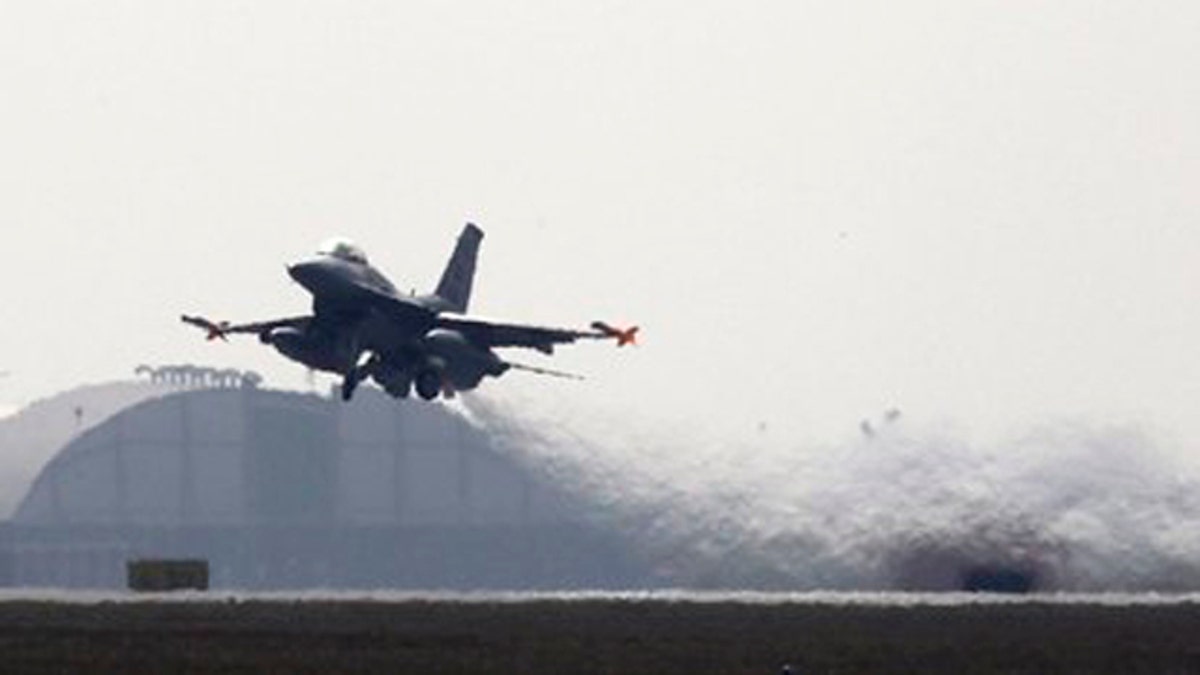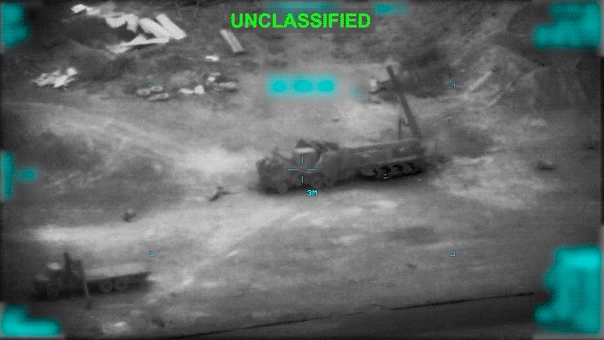
A 31st Fighter Wing United States Air Force F-16 jet fighter takes off at the Aviano NATO airbase in Aviano, Italy, March 25. (AP)
In Homer's Odyssey, protagonist Odysseus spends 10 years trying to reach Ithaca, encountering sirens and a cyclops along the way.
In President Obama's "odyssey," the U.S. military gets involved in a limited engagement against the "mad dog" of the Middle East -- only one that's supposed to settle down in a matter of days.
As the U.S. military now concedes, perhaps "Operation Odyssey Dawn" wasn't the best name for this supposedly in-and-out mission.
"We probably should have chosen something else, because people have read into that -- some type of long, enduring voyage," Eric Elliott, spokesman for U.S. Africa Command, told FoxNews.com.
It's anything but, the administration insists. With NATO taking partial control, U.S. officials claim the United States will soon be flying shotgun despite myriad concerns about Muammar al-Qaddafi's staying power and the extent to which America would use force to unseat him.
But with a name like "odyssey," it's hard to make that case.
The title of what may or may not be the United States' third concurrent war in a Muslim country rings of something epic. Like a Greek poem. Like a prog rock song (see The Dixie Dregs' seven-and-a-half-minute "Odyssey"). Like a convoluted Stanley Kubrick film that leaves viewers bewildered and unfulfilled.
Or, as Jon Stewart noted, like the title of a Yes album.
Or, as Stephen Colbert mused, "a Carnival cruise ship."
"I have to surrender to America before they threaten me with unlimited shrimp!" Colbert exclaimed on Comedy Central.
Comedians have to joke about something, but the Pentagon surely would hope the target's not as rudimentary as the name of the mission itself.
Choosing these names, though, is a half-random, half-calculated science, with varying results.
In this case, a panel of representatives from different branches of the U.S. military was given a set of letters and told to craft a two-word mission.
In the first word, the first letters had to either be between JS and JZ; NS and NZ; or OA and OF. The second word could be practically anything, provided it wasn't offensive.
Elliott said the panel ended up with a list of about 100 words, and then narrowed that down to about 60 by weeding out the plainly inappropriate titles.
"We're not going to call this nuclear dawn," he said. "We're not going to call this nubile dawn either."
In the end, they chose "Odyssey Dawn" back in February.
As Elliott's alternate titles proved, they could have done worse. After all, there have been some random mission names in the past, like Golden Pheasant in Central America in 1988 and Eldorado Canyon in Libya two years before that. Other titles went a bit too far, like Urgent Fury in Grenada or Operation Killer during the Korean War.
At the end of the Vietnam War, the military drafted specific guidelines for naming military operations. Followed in the case of the Libyan conflict, those guidelines give the name-makers a block of letters to choose from for the first word, but rule out "exotic words," commercial trademarks and anything that would "express a degree of aggression inconsistent with traditional American ideals or current foreign policy."
Political and military leaders, though, do have leeway, as Gregory Sieminski wrote in his 1995 essay "The Art of Naming Operations." He wrote that since the late '80s, operations have been named "with an eye toward shaping domestic and international perceptions." That's how we ended up with "Just Cause" in Panama and "Desert Storm" in Iraq.
Lt. Col. Tony Shaffer, a senior fellow with the Center for Advanced Defense Studies, said "Odyssey Dawn" doesn't send the right signal for a mission already under criticism for potentially being open-ended.
"It kind of denotes almost a wandering around the landscape," he said. "Odyssey, in this case ... reinforces the bad perceptions already out there."











































